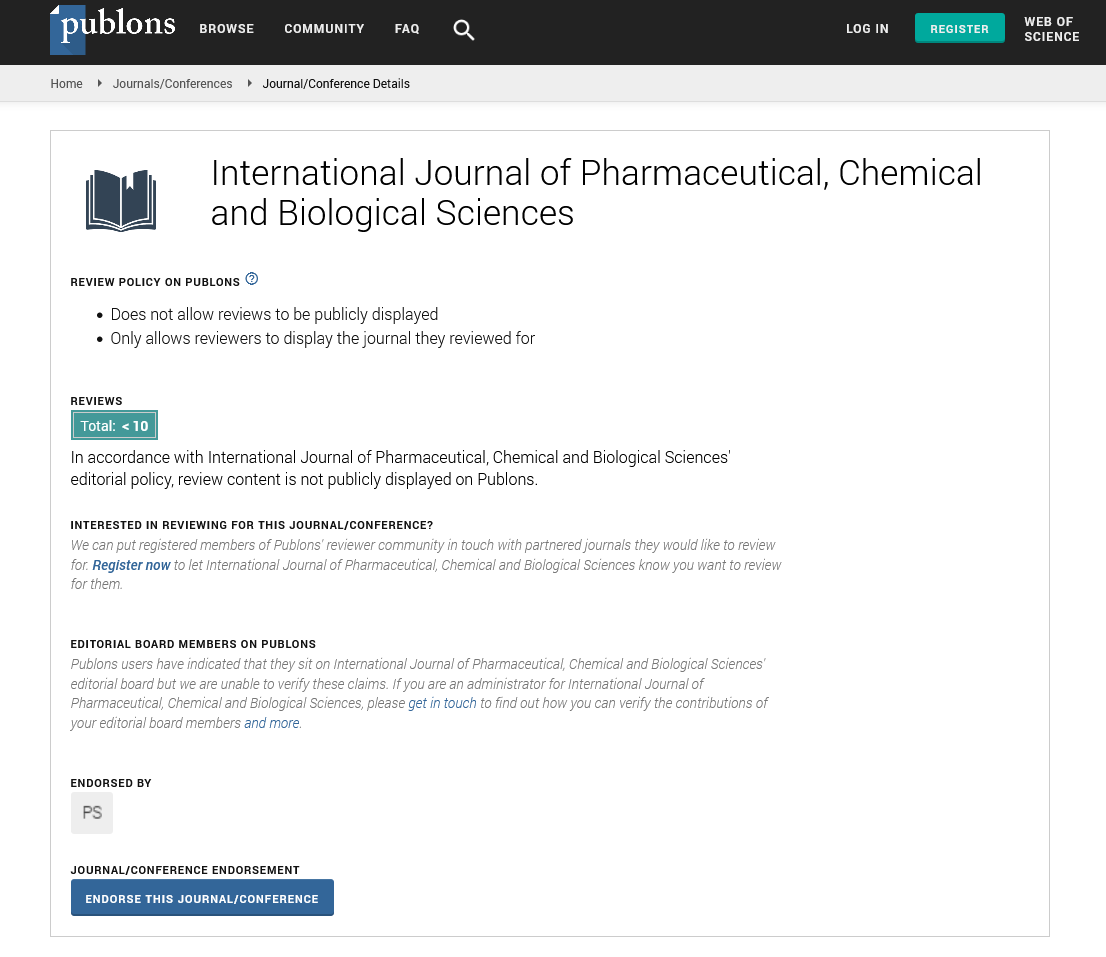Abstract
Author(s): Gargeyi Pavuluri, Senthil Kumar. K, Hareesha. Ch, Madhuri. K and Swathi. K.V
Curcumin is the product obtained by solvent extraction of turmeric i.e., the ground rhizomes of Curcuma longa L. (Curcuma domestica Valeton) and purification of the extract by crystallization. Extensive research within the last half a century has proven that most of these activities, associated with turmeric are due to curcumin. Curcumin has been shown to exhibit anti -oxidant, anti- inflammatory, antiviral, anti bacterial, anti fungal and anti cancer activities and thus has a potential against various malignant diseases, diabetes, allergies, arthritis, Alzheimer’s disease and other chronic diseases. These effects are mediated through the regulation of various transcription factors, growth factors, inflammatory cytokines, protein kinases and other enzymes. Curcumin is remarkably non-toxic and exhibits limited bioavailability. The purpose of this review is to provide a brief summary of the current knowledge of the effects of curcumin. Curcumin exhibits great promise as a therapeutic agent, and is currently in human clinical trials for a variety of conditions. Since multi targeted therapy is more effective than the mono targeted therapy, curcumin has promising scope in the future research

